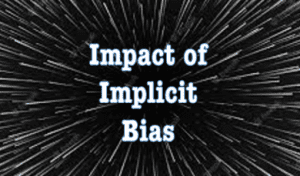Click here to add your own text
This training will give participants tools to enable them to see the child/family/client through a trauma-informed lens. Participants will be able to define what implicit bias is, how it manifests in their work as a helping professional, and discuss how the lack of cultural competency has historically and contemporarily reinforced barriers and created greater disparities within minoritized and marginalized communities through the policies, and practices and procedures in the field of the helping professional. Participants will also be challenged to consider the narratives that have been created about the people they encounter and how this may impact practices. We will model the creation of a safe space to discuss our own judgmental thoughts and how to acknowledge and then address them in a productive way.
Upon completion of this training, participants will be able to:
- Utilize self-awareness to identify their own implicit biases and the ways in which these biases
impact their practice. - Address the ways helping professionals acknowledge or do not acknowledge diversity in their work
with colleagues, students, and clients/communities and the ways that social workers may make judgments based on implicit biases. - Engage in reflection on ways that they can approach their work with respect and appreciation
of diversity as well as being challenged to consider how their implicit biases have impacted their direct client practice and their perceptions of colleagues and clients/communities. - Engage in strategies to acknowledge and address such biases so as to reduce the impact of
implicit biases on practices as well as describe strategies for addressing implicit bias in practice.
This course qualifies for 1.5 CE hours of Clinical, General Skill Building and Implicit Bias training.
Course Instructor: Yolanda Spiedel-Brown, MA, CTRT, MACC
Recording Date: 10/06/2024



